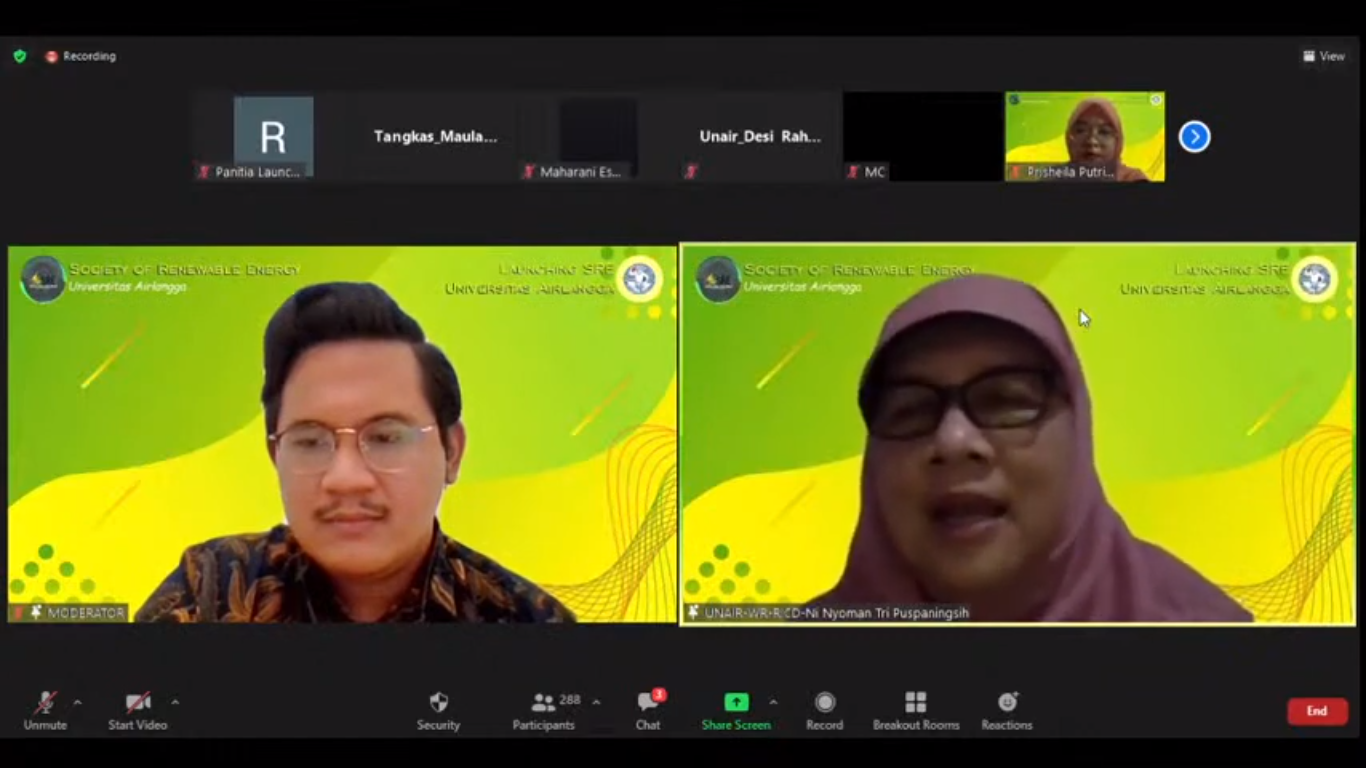UNAIRNEWS – On Saturday morning, February 6, 2021, UNAIR Society of Renewable Energy (SRE), which has just been established, held a webinar to launch its community. In order to improve the academic climate and awareness regarding the urgency of renewable energy at UNAIR, UNAIR SRE promote its theme “Catalyst for Sustainable Economic Growth in East Java”.
Various experts were invited to speak in this webinar, including UNAIR Vice Rector for Research, Innovation and Community Development Prof. Dr. Ni Nyoman Tri Puspaningsih. As a biochemistry expert , Prof. Nyoman was invited to discuss her research on renewable energy. The research focus she presented was related to biomass energy. Biomass energy comes from plant and animal material, whether it is from animal waste, soybeans, and even dead plants.
“The advantage of biomass energy is zero waste, nothing is thrown away. Take corn, for example. Corn can be consumed by humans as a carbohydrate material, while we can use the corncob and its skin as biomass energy,” she said.
This is where Prof. Nyoman coming in “Diversity and Novelty of Biomass Acting Enzymes from Indonesian Hot Spring Bacteria”. She explained that these biomass sources need to be degraded and broken down into bioethanol to become an energy source. Therefore, certain enzymes are needed to become bio-catalysts in the decomposition of these sources. The lecturer at Chemistry Department said that these enzymes can be found in bacteria whose habitat is in hot springs in Indonesia.
“The research that I have done for more than 19 years proves my point that the nature of renewable energy is given from nature. This enzyme is necessary if the degraded biomass is biomass from waste, such as household waste or dead plants. This enzyme can accelerate the release of monosaccharides contained in the biomass. If the concept of biomass renewable energy can be mass produced, the zero waste principle will be integrated more into our lives, ” she explained.
This UNAIR SRE Launching activity also invited representatives from the East Java ESDM Service and Pamela Simamora. Prisheila Putri Wardani as President of UNAIR SRE said that this organization is a milestone in increasing awareness of UNAIR students regarding the importance of developing alternative energy in Indonesia.
Author: Pradnya Wicaksana
Editor: Nuri Hermawan





